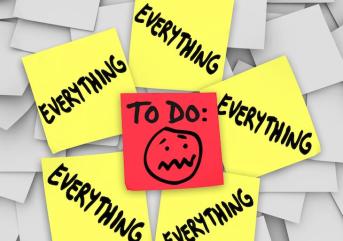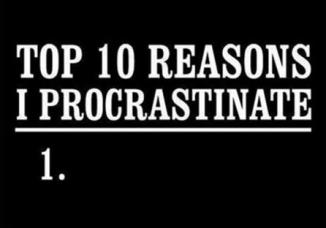With final exams fast approaching, stress usually starts rising. However, to cope with stress we must first understand stress. Here is the biological occurrence of stress step-by-step:
Alarms go off! Our senses recognize the threat and nerve signals send that message to the brain. That message next reaches the amygdala, which is the decision-making center and emotion regulator of the brain. It in turn sends the signal to the hypothalamus. Your hypothalamus, which is in charge of hormone production, initiates a sequence to produce cortisol. At the same time your nervous system releases adrenaline, which you very noticeably feel. The cortisol and epinephrine (adrenaline) reach the bloodstream and travel throughout the body. The cortisol then binds with these proteins called glucocorticoid receptors. Finally, the cortisol then boosts blood sugar. The epinephrine makes the heart beat faster and increases the oxygen flow to your muscles. This means you are ready to either “fight or flight”.
Now that we biologically understand the chain reaction that occurs when we encounter stress, the next question is how do we reduce stress? There are a few ways to reduce your stress, including:
that occurs when we encounter stress, the next question is how do we reduce stress? There are a few ways to reduce your stress, including:
1.) Utilize meditation and breathing exercises. It may sound cliché, but meditating and doing deep breathing really does lower stress. If meditation isn’t your cup of tea, then try doing introspective tasks such as gardening, walking, or riding your bike.
2.) Socialize with others. Being social is a great way to reduce your stress. By socializing with your family and friends, you in turn are distracting yourself from your stressor, thus relieving yourself of a stressful situation.
3.) Exercise. Exercising is a great task to heal your body in many different ways. Exercising is naturally good for the body and the same is true with alleviating stress. Whether it is aerobic or nonaerobic exercises, your body and mind will thank you for it!
4.) Stress inoculation. Not all stress is bad. Also, the more you encounter stress, the more likely you know how to deal with it. Being resilient against stress is something that must be built up over time, but by developing calm reactions and utilizing that meditation, you greatly increase your resiliency to stress in the long run.
5.) Walk away. Sometimes the stuff that stresses you out, just simply isn’t worth it. You must evaluate your stressors and decide whether or not they are important enough to be stressed over them. Sometimes just thinking through problems in this way is a great way to bring your stress down to manageable levels.
6.) Medications. Although we do not advocate getting medicine every time you get stressed, sometimes severe forms of ongoing stress require a little kick to reduce it.
(Adapted from: “The Science of Stress”, Popular Science Magazine, March 2015)
 that occurs when we encounter stress, the next question is how do we reduce stress? There are a few ways to reduce your stress, including:
that occurs when we encounter stress, the next question is how do we reduce stress? There are a few ways to reduce your stress, including:


 confusing and at times complex. When you have questions about financial aid, you will find the answers in the Office of Financial Aid. Our staff wants to assist you and your family in any way possible. We want to make the process of applying for and receiving financial aid as simple and as seamless as possible.
confusing and at times complex. When you have questions about financial aid, you will find the answers in the Office of Financial Aid. Our staff wants to assist you and your family in any way possible. We want to make the process of applying for and receiving financial aid as simple and as seamless as possible. down what it is you plan to study. By already having this information down, there is less of a chance that you will stray from what you need to get accomplished.
down what it is you plan to study. By already having this information down, there is less of a chance that you will stray from what you need to get accomplished.